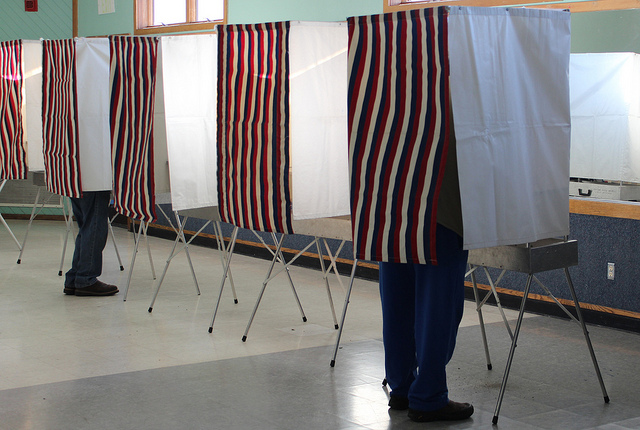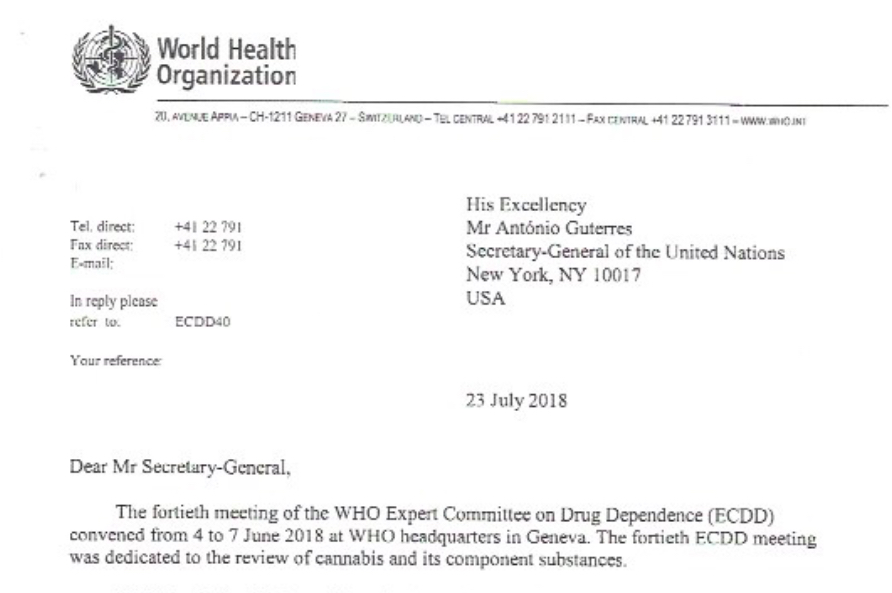Welcome to the evolving world of cannabis legislation and taxation in California. With the recent 2018 midterm election, a green wave of new laws and regulations has washed ashore, and Taxnexus, a cannabis tax compliance service provider for cannabis businesses, has analyzed the results, looking for insights to guide cannabis business owners in 2019.
In summary, the trend of local counties and cities imposing new cannabis taxes on dispensaries, distributors and cultivators continues, but with some important lessons being learned.
A Brief History of California Cannabis Tax Regulations.
The legalization of cannabis in California brought with it cannabis excise tax and cultivation taxes with the hope of bringing in significant amounts of income in cannabis taxes. The state had projected $185M in cannabis tax revenue for the first six months of 2018. Although California has since collected tens of millions of dollars fewer than anticipated, it did bring in over $135M in the first and second quarters from a brand new industry.
Local governments are able to collect these taxes directly from cannabis businesses. With the green light from the state and the need for a new source of revenue, many local governments followed suit and passed laws to impose taxes on cannabis businesses operating in their jurisdictions. The need for additional revenue is even greater for localities that allow cannabis business operations given that the state takes virtually all of the state-imposed cannabis taxes while the local government entities are burdened by the related costs of regulations and enforcement at the local level.
Cannabis business taxes have an extra allure for local jurisdictions. Unlike local sales and use taxes, the state does not require local cannabis business taxes to go through the state before a portion of it gets funneled back to the localities. Local governments are able to collect these taxes directly from cannabis businesses.
Since January 1, 2018, many local jurisdictions have come onboard and placed ballot measures for their voters to decide whether to tax cannabis businesses. According to research conducted by Taxnexus, by the end of the second quarter this year, there were over 500 different local cannabis tax rates in California.The new cannabis tax measures are also continuing the trend of widely ranging local cannabis tax laws.
Midterm Results Continue Overwhelming Support for Cannabis Industry
With over 50 cannabis tax measures placed on the November 6 local ballots, most of which passed with overwhelming support from voters, the number and variation of local cannabis business taxes continue to grow. This demonstrates the continuing trend of local governments welcoming cannabis businesses, the evolving voter attitude toward recreational cannabis, and perhaps most importantly, the localities’ desire to take their cut of the new industry’s tax revenue.
The new cannabis tax measures are also continuing the trend of widely ranging local cannabis tax laws. Given that the Medicinal and Adult-Use Cannabis Regulation and Safety Act granted local jurisdictions control over deciding their own cannabis business regulations, there is no statewide uniformity. Here are a few examples of the cannabis business tax measures that were on local ballots on November 6:
San Francisco
While some local jurisdictions were quick to impose cannabis taxes, others have delayed in taxing their local cannabis businesses. San Francisco’s Proposition D, which received a 66% voter approval, won’t go into effect until January 1, 2021. It imposes taxes on cannabis businesses that do business in the city, whether or not they are physically located there. The new cannabis business taxes are as follows:
- For cannabis retail businesses, 2.5% of gross receipts up to $1M and 5% of gross receipts over $1M.
- For cannabis non-retail businesses, 1% tax of gross receipts up to $1M and 1.5% of gross receipts over $1M.
These taxes do not apply to the first $500,000 of recreational cannabis gross receipts nor revenues from medical cannabis retail sales. The measure allows the Board of Supervisors to adjust the tax rates up to 7%. The cannabis businesses taxes are expected to generate $5M to $12M in cannabis tax revenue, and will go into the City’s general fund.The new tax measures underscore the lack of uniformity in local cannabis business taxes throughout the state.
Emeryville
Emeryville passed a new cannabis business tax measure to increase its current nominal rate. Measure S imposes a cannabis business tax of up to 6% of gross receipts. This is estimated to generate $2M in tax revenue to be used for unrestricted governmental purposes.
Oakland
Oakland is among the few local jurisdictions that placed a measure on its November 6 ballot to lower its existing cannabis business tax rates. Previously, Oakland imposed a 5% tax on medical cannabis and a 10% tax on recreational cannabis, for all cannabis activities throughout the supply chain. These are among some of the highest cannabis tax rates in the state and are squeezing out small operators. Although Oakland has long been seen as the leader in California’s cannabis industry, the high taxes are making it difficult for its cannabis businesses to compete with nearby cities that charge lower taxes. While the city acknowledged the hardship its high taxes imposed, it maintained that it could not lower the rates on its own and required the voter approval. On November 6th, Oakland voters passed Measure V by 78%, which gives the City Council the authority to lower the city’s cannabis tax rates through an ordinance. To give additional relief to the cannabis businesses in the city, this measure also allows them to deduct the cost of raw materials from their gross receipts- something they cannot do on their federal tax returns. Furthermore, local cannabis business taxes can now be paid on a quarterly basis instead of one annual payment at the beginning of each year, which was severely burdensome for most businesses.
Lake County
Voters in Lake County approved Measure K by a majority vote to tax cannabis businesses in the unincorporated county effecting January 1, 2021. The county was previously only taxing cultivators at $1 to $3 per square footage depending on the method of cultivation. These rates will be reduced to $1 per square footage for cultivators and nurseries, and other cannabis businesses will be taxes between 2.5% and 4% of their gross receipts.
Mountain View
While there is a maximum of four cannabis businesses permitted to operate in Mountain View, over 80% of voters approved Measure Q to tax them. The measure imposes up to 9% of gross receipts to fund general city purposes, with an estimated annual revenue of $1M.Some have even set the effective dates of their cannabis tax laws several years out to allow their local cannabis businesses an opportunity to establish roots and drive out the black market.
Lompoc
Some jurisdictions have passed more creative cannabis business tax regimens than one rate applicable to the entire supply chain. Voters in Lompoc in Santa Barbara County approved Measure D2018 to authorize the city to impose following cannabis business taxes:
- Up to $0.06 per $1 (6%) of recreational retail sales proceeds;
- Up to $0.01 per $1 (1%) of cultivation and nursery proceeds;
- An annual flat fee tax of $15,000 if net income is less than $2M of manufacturing and distribution proceeds;
- An annual flat fee tax of $30,000 if net income is $2 Million or more of manufacturing and distribution proceeds;
- A total aggregate tax of $0.06 per $1.00 (6%) of microbusinesses proceeds, not including medical cannabis transaction proceeds; and
- No tax on testing.
Riverbank
There are signs that other localities that waited to jump onboard have learned from these high-taxing jurisdictions and opted for lower rates. There are even those localities that although they do not statutorily permit cannabis businesses to operate in their jurisdictions, they still want a piece of the action when it comes to cannabis taxes. The city of Riverbank in Stanislaus County currently does not allow cannabis businesses to operate without first obtaining a permit from City Hall and entering into a development agreement with the city that negotiates how much of their revenue the city would take. However, the voters just passed Measure B, which authorizes Riverbank’s City Council to impose a business license tax of up to 10% of gross receipts on cannabis businesses in the event the city allows cannabis businesses to operate within its city limits in the future. This tax has incentives other than the apparent potential of tax revenue. This guarantees the city a cut of the earnings of any illegal cannabis businesses, and serves as a protection in the event the permit and development agreement scheme the city has enacted is later found to be invalid.
The Chaos Continues
The new tax measures underscore the lack of uniformity in local cannabis business taxes throughout the state. Compliance is especially burdensome for delivery companies and multi-location and multi-license cannabis businesses. Cannabis businesses are required to keep up with new and evolving cannabis tax regimens, which, judging by the shortfall in cannabis tax revenues compared to their projections so far, is a difficult feat for these highly-regulated businesses.Of course, there are still some local governments that appear to have missed all the signs and have passed new high taxes.
The overall trend in 2018, persisting through the midterm elections, is that more local jurisdictions are joining the cannabis tax bandwagon, and while the tax rates and structures are still all over the map, there appears to be some movement toward honing the cannabis business rates toward that “sweet spot.”
Cities like Oakland and Berkeley that immediately began to tax cannabis businesses at high rates have lowered or taken steps to lower their tax rates to keep their competitive edge and retain cannabis businesses within their jurisdictions. There are signs that other localities that waited to jump onboard have learned from these high-taxing jurisdictions and opted for lower rates. Some have even set the effective dates of their cannabis tax laws several years out to allow their local cannabis businesses an opportunity to establish roots and drive out the black market.
Of course, there are still some local governments that appear to have missed all the signs and have passed new high taxes. In due time, they, too, will give in to the market pressures and make necessary adjustments if they want to continue to benefit from the legal cannabis industry in their jurisdictions.
Taxnexus is an automated transaction-to-treasury cannabis tax compliance solution for the entire cannabis supply chain that provides point-of-sale state and local cannabis tax calculation, sales and use tax calculation, tax data management as the authority of record, and timely filing of returns with all applicable taxing authorities.


































